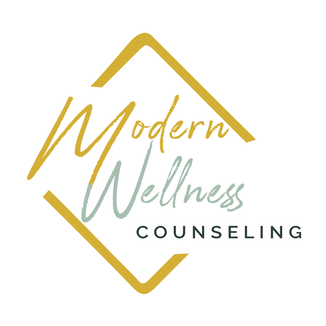In the intricate dance of human relationships, forgiveness plays a pivotal role in maintaining emotional health and fostering deep connections. Whether in friendships, family dynamics, or romantic partnerships, the ability to forgive is not just a virtue but a cornerstone of sustainable relationships. This blog explores why forgiveness is crucial, how it heals emotional wounds, and why ignoring issues is not the same as forgiving.

Why I Should Forgive: Understanding the Benefits
Forgiveness is often misunderstood as excusing someone’s behavior or condoning wrongdoing. However, its essence lies in releasing oneself from the grip of negative emotions such as anger, resentment, and bitterness. When we hold onto grudges, we imprison ourselves in a cycle of pain, preventing personal growth and reconciliation. By choosing to forgive, we liberate ourselves from emotional burdens and open the door to healing.
Psychologically, forgiveness reduces stress and promotes mental well-being. Studies have shown that forgiving others is linked to lower levels of anxiety and depression, as it allows individuals to let go of negative emotions that can otherwise lead to prolonged suffering. Moreover, forgiving others can improve physical health by reducing heart rate and blood pressure, demonstrating the profound mind-body connection involved.
How Forgiveness Heals: The Power of Emotional Restoration
Forgiveness is not merely a superficial act of saying “I forgive you.” It involves a deep emotional process that acknowledges the hurt caused and chooses to move beyond it. When someone forgives, they reclaim their power and autonomy, refusing to let past grievances define their present or future. This process is transformative, as it allows individuals to rebuild trust, repair relationships, and cultivate empathy.
Consider a couple facing betrayal: when one partner forgives the other, it doesn’t erase the pain but acknowledges a willingness to heal and rebuild trust. The act of forgiveness requires courage and vulnerability, as it involves confronting painful emotions and choosing empathy over resentment. Through forgiveness, individuals can reconnect on a deeper level, fostering a sense of mutual understanding and compassion.

How Forgiveness Works: Steps Towards Reconciliation
Forgiveness is a multifaceted process that unfolds over time. It begins with acknowledging the hurt and the emotions associated with it. This step is crucial as it validates one’s feelings and creates a foundation for healing. Next, forgiveness involves making a conscious decision to release negative feelings and resentment towards the offender. This decision is empowering, as it shifts focus from past grievances to future possibilities.
Communication plays a vital role in the forgiveness process. Expressing feelings openly and honestly allows both parties to understand each other’s perspectives and work towards reconciliation. This exchange of emotions fosters empathy and strengthens emotional bonds, laying the groundwork for rebuilding trust and repairing the relationship.
The Difference Between Ignoring and Forgiving
Ignoring a problem is not the same as forgiving. Ignoring involves suppressing emotions or pretending that the issue does not exist. While this approach may provide temporary relief, it does not address underlying issues or promote genuine healing. In contrast, forgiveness acknowledges the reality of the situation and actively seeks resolution. It encourages dialogue, empathy, and mutual understanding, paving the way for sustainable relationship growth.
Imagine a scenario where a friend repeatedly cancels plans without explanation. Ignoring this behavior might involve brushing off feelings of disappointment or frustration, leading to unresolved resentment. On the other hand, forgiving would involve addressing the issue directly, expressing how their actions affect you, and working together to find a solution or understanding.

The Emotional Journey: Stories of Forgiveness and Growth
Stories of forgiveness are powerful reminders of the human capacity for empathy and resilience. Consider the story of Sarah and Mark, who faced infidelity in their marriage. Initially consumed by anger and betrayal, Sarah chose to confront her feelings and engage in open dialogue with Mark. Through tears and difficult conversations, they both acknowledged their mistakes, expressed remorse, and committed to rebuilding trust.
Over time, Sarah found that forgiveness was not about forgetting or condoning Mark’s actions but releasing herself from bitterness and choosing to forgive for her own emotional well-being. This journey was challenging, marked by setbacks and doubts, but ultimately strengthened their bond and renewed their commitment to each other.

Moving forward
In conclusion, forgiveness is a profound act of self-liberation and relational healing. By choosing to forgive, individuals can transcend pain, rebuild trust, and cultivate deeper connections with others. It is not an easy journey and may require time, patience, and empathy. However, the rewards of forgiveness—emotional freedom, restored relationships, and personal growth—are invaluable. As we navigate the complexities of relationships, let us remember the transformative power of forgiveness in healing wounds and nurturing lasting connections.
If you would like to learn more about learning how to forgive, be sure to reach out to schedule a session with one of our licensed clinicians. Therapists here at Modern Wellness Counseling are trained to help you work through this growth.
Begin Online Couples Counseling in San Antonio, TX
Getting Scheduled:
Getting started with a therapist for online couples counseling is easy and convenient while in the comfort of your own home. You can schedule online through our Client Portal. If you are planning to use your insurance, please note that only a few clinicians accept limited insurance plans for Online Couples therapy. You can give our office a call at 210-706-0392, and our intake coordinator can answer any questions you may have. If your insurance is accepted, we will get you scheduled and gather the needed insurance information.
What we need from you:
In order to get scheduled for online couples counseling, we will need the following from you, your full name, email address, and phone number. We do require you to make a $40 deposit to hold your intake session. This deposit goes toward your first session’s payment.
What to expect between scheduling and your session:
After you are scheduled, you will receive a link to your secured client portal. You will have documents to sign and complete 24 hours before your intake session. Ten minutes before your session, you will receive a secured link for your video call. You can use this link to join in on your online therapy session.
Other Therapy & Counseling Services at Modern Wellness Counseling
In addition to online couples counseling , learn more about our therapy and counseling services including premarital counseling, Online Therapy for Anxiety, and individual counseling, to help you thrive in relationships and life!
By: Priscilla Rodriguez, M.S., LMFT I specialize in working with couples and individuals to restore their relationships by utilizing research-based therapy techniques. Feel free to look at the online services offered through Modern Wellness Counseling and check out the client portal to conveniently schedule your next appointment. Want to say “thank you”?




